
ЦЕНТРАЛЬНЫЙ КОМИТЕТ
ПРЕСС-ЦЕНТР
Тел./факс (499)973-19-34 (Лепихов Владимир Александрович), сайт www.kpss.org
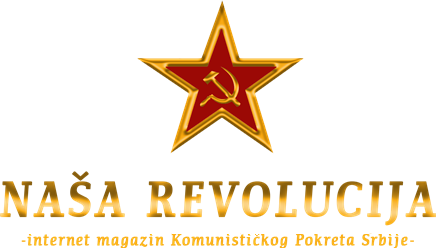
 Naša Revolucija
Internet portal Komunističkog Pokreta Srbije
Naša Revolucija
Internet portal Komunističkog Pokreta Srbije


Coordinator: Srdja Popovic - Ivan Marovic
Biography of Srđa Popović
He started out as a "pro-democracy" activist in Serbia by founding the group "Otpor" (Resistance), which led the protests that drove President Slobodan Milosevic from power in 2000. At that period the American services invested more than 100 million Dollars for that purpose.
Popvic then exported his nonviolent methods, helping train the activists who spearheaded Georgia's Rose Revolution in 2003 and Ukraine's Orange Revolution in 2004.
Srđan Popovic is deploying his new organization, called Canvas, even farther affiliate - assisting the "pro-democracy" activists who recently brought down regimes in Egypt and Tunisia, mostly through the use of Facebok, Twitter, Skyp and others mass social networks. Most of the mass social networks is use to recruit potential students, but that is not exclusive source for...
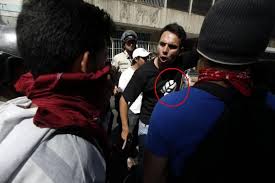
|
Simbol zločinačke organizacije , poznate kao Otpor (Canvas) i u Venecueli
|
U Venecueli je došlo do niza akata nasilja koji imaju za cilj prekidanje ustavotvorne niti i usmereni su protiv revolucionarne vlade Bolivarske Republike Venecuele, od strane neofašističkih grupa koje, poigravajući se sa podrivanjem integriteta i stabilnosti domovine, žele da je destabilizuju i ponove scenario od 11. aprila 2002. godine i igraju na kartu državnog udara. Sledi hronologija događaja kojima se otkriva zaverenički plan koji je do sada, uz podršku velikih međunarodnih medijskih kuća, rezultirao sa 3 mrtvih Venecuelanaca i 23 povređenih.
- Ponedeljak, 03. februar: lideri fašističke venecuelanske opozicije najavili su protestnu šetnju za 12. februar pod sloganima „12. je taj dan“ i „Dole Maduro“.
- Četvrtak, 06. februar: opozicija organizuje...
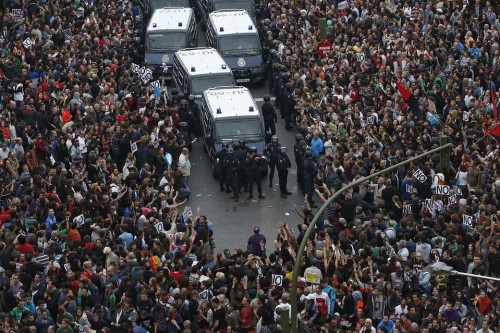
It sometimes seems as if Europe’s sovereign debt crisis has been going on forever. But in fact it really only manifested itself in 2010, a result of the bailing out of private banks with public money and other public spending due to the crisis. And in May of that year Greece became the first country to ask for help and to receive so-called “aid” – really, it cannot be repeated too often, loans that must be paid back – from the now infamous "Troika", the IMF-ECB-European Commission.
This aid was conditional on Greece adopting policies of austerity and structural reforms, all regularly supervised by those who have become known as the “men in black”, the inspectors of the Troika. In an article in the UK Guardian on October 8, 2012, Alexis Tsipras, leader of the radical left coalition Syriza, makes two key points. First of all, the money lent to Greece goes into an...

U tzv. „procesu Ergenekon“, nekoliko političara, novinara, akademika i penzionisanih pripadnika oružanih snaga nalaze se već godinama u pritvoru.
Ovaj se pritvor pretvorio u kaznu zbog samog njegovog trajanja, efikasno sprečavajući optužene u obavlјanju svojih političkih dužnosti. Među njima je gospodin Doğu Perinçek, predsednik Radničke partije (Turska), koji je u pritvoru, zbog ispitivanja, već 5 godina i devet meseci.
Nedavno je Vrhovni sud Turske odlučio, da je "ovako dugi period pritvora kršenje ljudskih prava".
Ova presuda je doneta nakon žalbe Mustafa Balbay, člana Parlamenta iz redova Republikanske narodne partije (CHP).
Nakon presude Vrhovnog suda, Mustafa Balbai, oslobođen od strane 13-og Apelacionog suda. Ipak, presuda je sprovedena samo za Mustafu, dok za ostale pritvorenike nije.
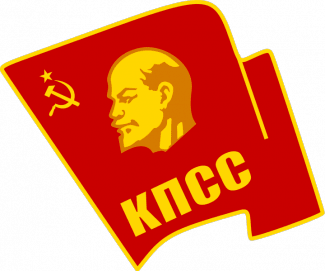
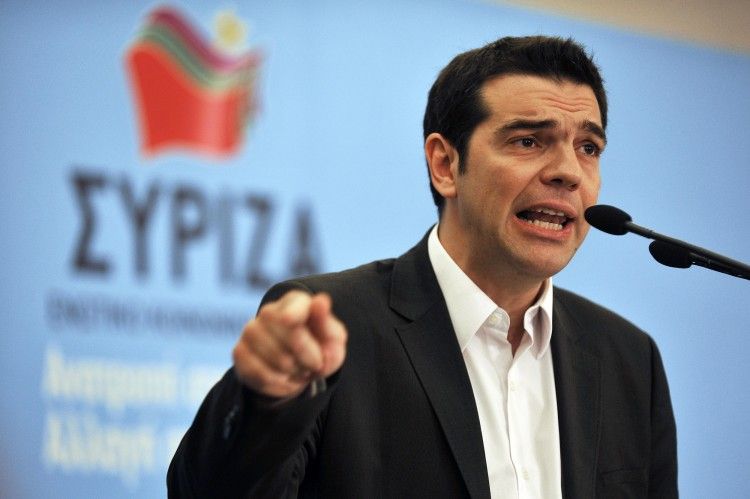
Alexis Tsipras, leader of Greece's Syriza, the Coalition of the Radical Left, has announced he is standing presidency of the European Commission on behalf of the European Left Party. This article appeared in the November 28, 2013, Guardian.
* * *
More than 1000 young people a day are joining the ranks of Europe's unemployed. In the past four years the army of jobless people across the continent has grown by more than 10 million.
In Greece, despite the government's claim that austerity has been a success, the 2014 budget imposes new public spending cuts and more job losses. The economic and humanitarian catastrophe is unprecedented in peacetime: 27% unemployment, 60% youth unemployment, a 25% shrinking of GDP, 40% reduction in family income. And, even after relentless pain, the debt-to-GDP ratio is almost 180%. It was only 120% in 2010 when the first austerity measures were imposed.